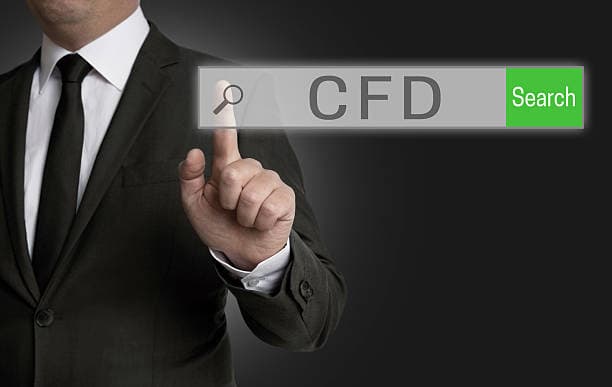The world of trading is a vast ocean, filled with currents and tides that move with the pulse of global economies. It’s a place where every day, millions of traders navigate through the ebbs and flows of financial markets, seeking opportunities amidst the chaos. This is the world of global markets, a playground for the bold and a battleground for the resilient. It’s a place where the most traded assets are not just commodities or stocks, but the very heartbeat of our interconnected world.
The Pulse of Global Markets
Traders, the unsung heroes of the financial world, are the lifeblood of global markets. They are the ones who, with a keen eye and a steady hand, turn the wheels of commerce. Every tick of a price, every blink of a screen, is a decision point, a moment where a trader’s intuition meets the cold, hard reality of supply and demand. These are the moments that define the most traded assets in global markets.
The Currency of Commerce
When we talk about the most traded assets, we can’t ignore the role of currencies. They are the lifelines that connect every corner of the globe. The US Dollar, the Euro, the Japanese Yen – these are not just units of exchange; they are the very fabric of global trade. Traders watch these currencies with hawk-like eyes, anticipating shifts in value that can signal economic changes or political unrest.
The dance of currencies is a delicate one. A trader must understand the subtleties of interest rates, geopolitical events, and economic indicators to predict how these assets will move. It’s a high-wire act without a net, where a misstep can lead to significant losses. But for those who can read the market’s mood, the rewards are immense.
The Power of Equities
Equities, or stocks, are the muscles that power the global markets. They represent ownership in companies, the promise of future growth, and the potential for significant returns. Traders who specialize in equities are not just buying and selling pieces of paper; they are investing in the dreams and ambitions of entrepreneurs and innovators around the world.
The allure of equities lies in their potential for high returns, but with great reward comes great risk. The stock market is a volatile place, where fortunes can be made or lost in the blink of an eye. Traders (In Arabic, it is called “المتداول“) must stay informed about company earnings, industry trends, and global economic shifts to make informed decisions.
The Role of Commodities
Commodities are the backbone of the global economy. From oil and gold to wheat and coffee, these tangible assets are essential for the functioning of societies. They are also some of the most traded assets in global markets, with prices influenced by a myriad of factors, including supply and demand, geopolitical tensions, and natural disasters.
Trading commodities requires a deep understanding of global supply chains and the ability to anticipate how events half a world away can affect prices. It’s a complex dance, but for those who can master it, the potential for profit is substantial.
The Rise of Cryptocurrencies
In recent years, a new asset class has emerged that has captured the imagination of traders and investors alike: cryptocurrencies. From Bitcoin to Ethereum, these digital currencies have challenged traditional notions of money and value.
The world of cryptocurrency trading is a wild west, with extreme volatility and the promise of high returns. Traders must navigate a landscape filled with technological innovations, regulatory changes, and market speculation. It’s a space where the line between opportunity and risk is often blurred, but the potential rewards can be life-changing.
The Impact of Geopolitics
Global markets (In Arabic, it is called “الاسواق العالمية“) are not immune to the whims of geopolitics. Wars, elections, and trade agreements can all have a profound impact on the most traded assets. Traders must stay attuned to the political climate, as events on the world stage can send ripples through the markets.
The impact of geopolitics on trading is multifaceted. It can lead to sudden shifts in currency values, affect the price of commodities, and influence investor sentiment. Traders must be prepared to adapt their strategies in response to these events, as the global landscape can change rapidly.
The Influence of Central Banks
Central banks play a pivotal role in shaping the global markets. Their decisions on interest rates and monetary policy can have far-reaching effects on the most traded assets. Traders watch these institutions closely, as their actions can signal economic health or impending changes in the market.
Understanding the policies of central banks is crucial for traders. It can provide insight into future market movements and help inform trading decisions. It’s a game of anticipation, where being one step ahead can make all the difference.
The Role of Market Sentiment
Market sentiment is a powerful force in global markets. It can drive prices higher or send them plummeting, often based on perceptions and emotions rather than hard data. Traders must learn to read the mood of the market, as it can provide clues about which assets are poised to become the most traded.
Market sentiment is fickle and can be influenced by a variety of factors, including economic data, corporate earnings, and global events. Traders who can anticipate shifts in sentiment can gain a competitive edge in the market.
The Importance of Diversification
In the world of global markets, diversification is key. No single asset class can provide all the answers, and traders must spread their risk across a variety of assets to protect against market volatility. Diversification allows traders to capitalize on the strengths of different markets while mitigating the risks associated with any one asset.
Understanding the importance of diversification is crucial for traders. It requires a broad knowledge of the global markets and the ability to identify opportunities across a range of assets. It’s a strategy that requires patience and foresight, but it can lead to more stable and consistent returns.
The Future of Trading
As we look to the future, the landscape of global markets is evolving. New technologies, such as artificial intelligence and machine learning, are changing the way traders interact with the markets. These tools can provide insights into market trends and help traders make more informed decisions.
The future of trading is one of innovation and adaptation. Traders must be willing to embrace new technologies and strategies to stay ahead in the global markets. It’s a world where the most traded assets can change rapidly, and those who can adapt will be the ones who thrive.
In conclusion, the world of global markets is a complex and dynamic place. It’s a world where traders must be adaptable, informed, and ready to seize opportunities as they arise. The most traded assets are not static; they shift with the tides of global events and economic conditions. For those who can navigate these waters, the rewards are not just financial; they are the satisfaction of participating in the grand dance of global commerce.



